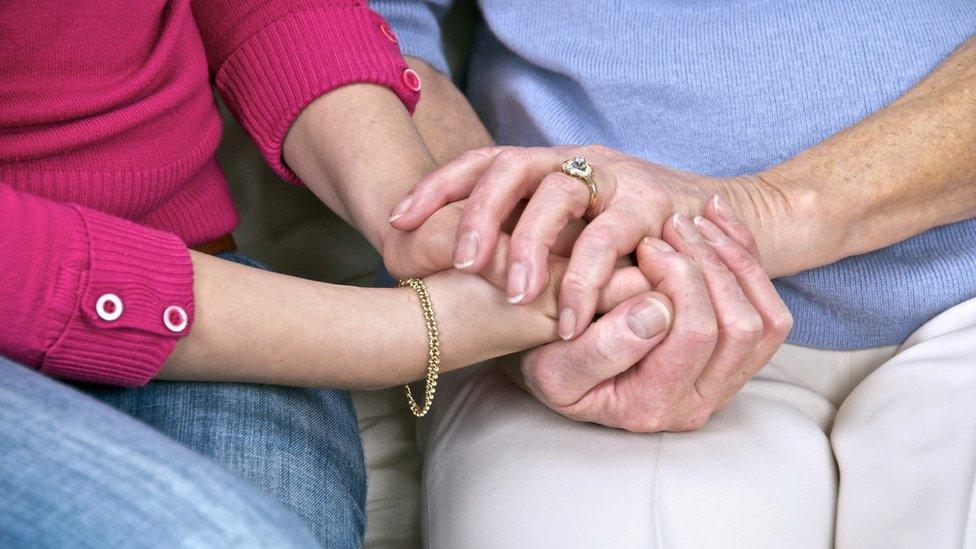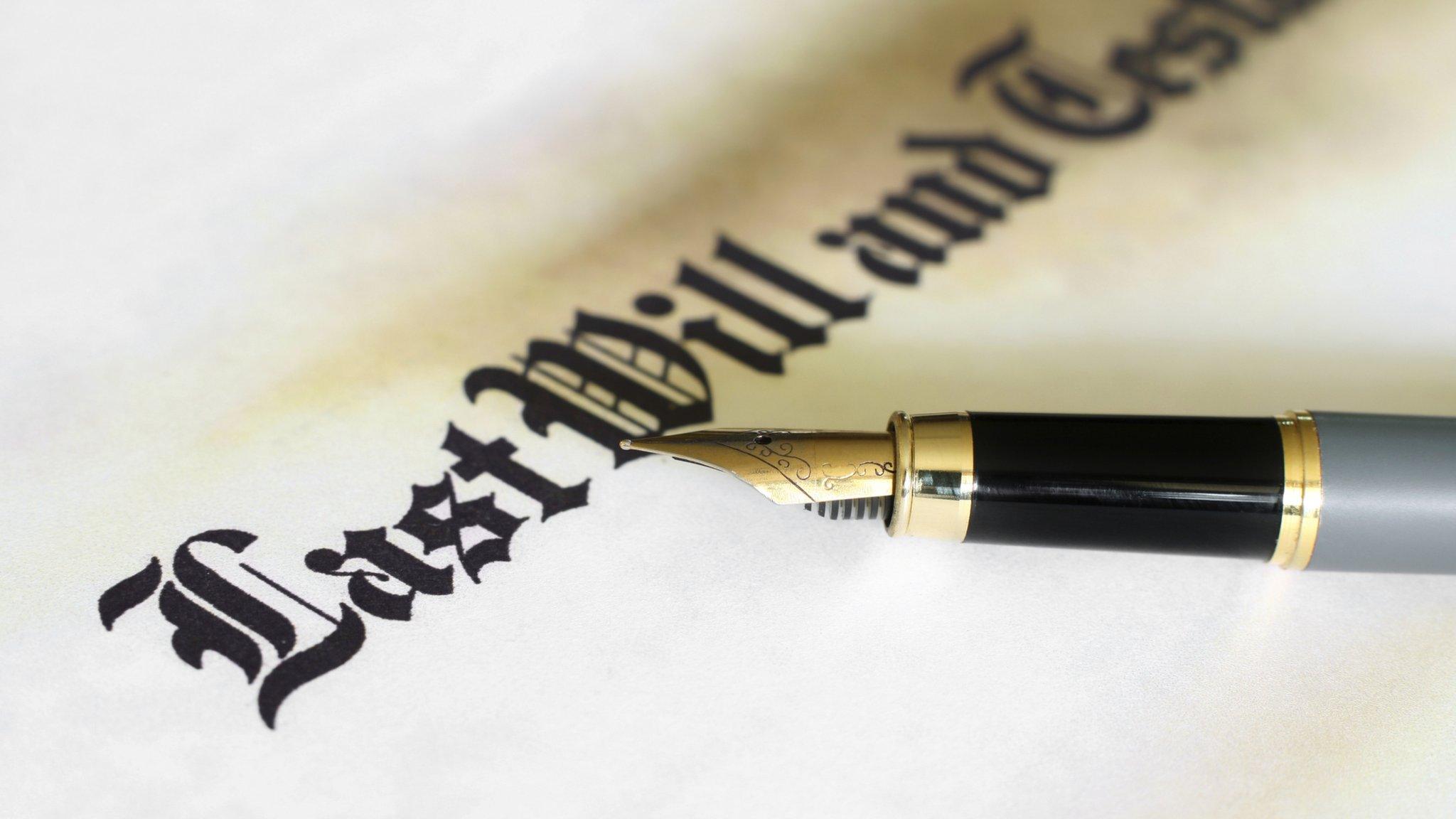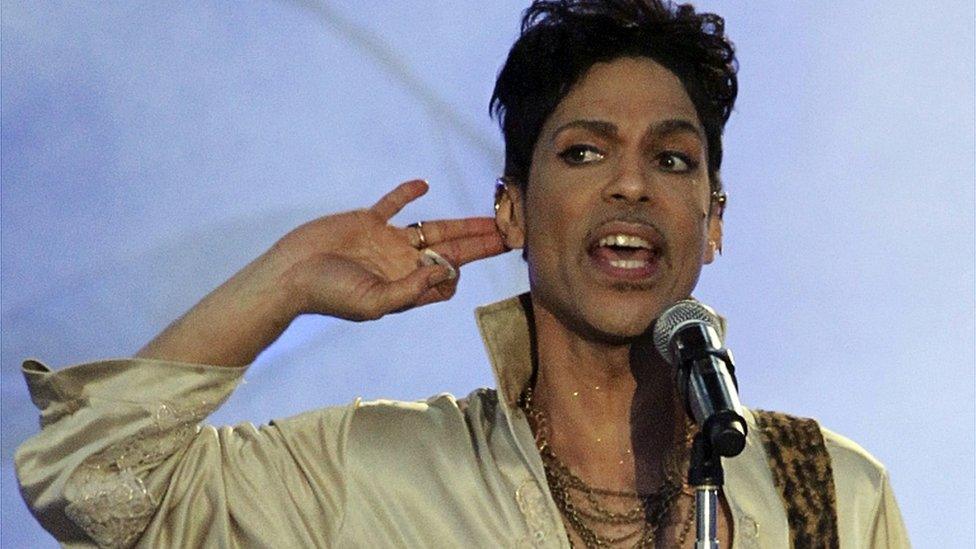Making a will: Sharp rise for intestate queries
- Published

The number of enquiries about people who have died without making a will has more than doubled over the past five years, Citizens Advice says.
The charity told BBC 5 live Daily it had 1,522 such queries in 2011, rising to 3,747 in 2015, along with a rise in queries about problems executing wills.
According to a YouGov survey, nearly two thirds of the British adult population do not have a will.
Lawyers say not leaving one can cause financial stress for loved ones.
Last month it emerged that the musician Prince died without a will - a situation known as intestacy. A bank was brought in to manage his assets, worth hundreds of millions of dollars.

Citizens Advice queries
On intestacy problems:
2011 - 1,522
2012 - 1,942
2013 - 2,626
2014 - 3,500
2015 - 3,747
On executing wills (including probate):
2011 - 8,160
2012 - 9,789
2013 - 10,872
2014 - 10,448
2015 - 11,137

According to the YouGov survey of 1,794 adults, 38% of the public in England and Wales had a will in 2015, up from 35% in 2014.
The poll was conducted by YouGov for the Legal Services Consumer Panel Tracker Survey 2015.
Brian, who did not wish to give his surname, administered his cousin Peter's estate after he died without making a will, leaving an estate worth about £700,000.
The process took about two years, cost thousands of pounds and resulted in 17 people, some of whom had never met Peter, splitting his estate.
Final wishes
Brian said: "We had to pay £240,000 in inheritance tax so that hurts. If he had gone to a solicitor or a nice little company which I've used, they would have sorted all that out for him.
"It took two years of my life. I really took it on as a bit of a challenge really, and I felt obliged to do it because we were fairly close, and I just felt I had to do it.
"I think my message to everyone would be to please make a will, because then you can give your money to the people of your choice."
Jonathan Smithers from the Law Society, which represents solicitors in England and Wales, said it was important for people to make a will, especially those with children or property or financial investments.
"A will helps to ensure that your assets are divided among the family, friends and charities of your choice, and can help you manage the amount of inheritance tax you pay," he said.
"Thousands of people die every year without making a will or without one that has been properly drafted. If you die without a will your final wishes may well go unheeded, and your loved ones may have to cope with additional financial stress at a time of bereavement."

What happens if there is no will?
If someone dies without a will, rules dictate how their money, property or possessions should be allocated, and potentially not in the way the deceased would have wished
Unmarried partners and partners who have not registered a civil partnership cannot inherit from each other unless there is a will
If there are no surviving relatives who can inherit under the rules of intestacy, the estate passes to the Crown
Specific rules can vary across the United Kingdom

- Published23 August 2013

- Published26 April 2016
